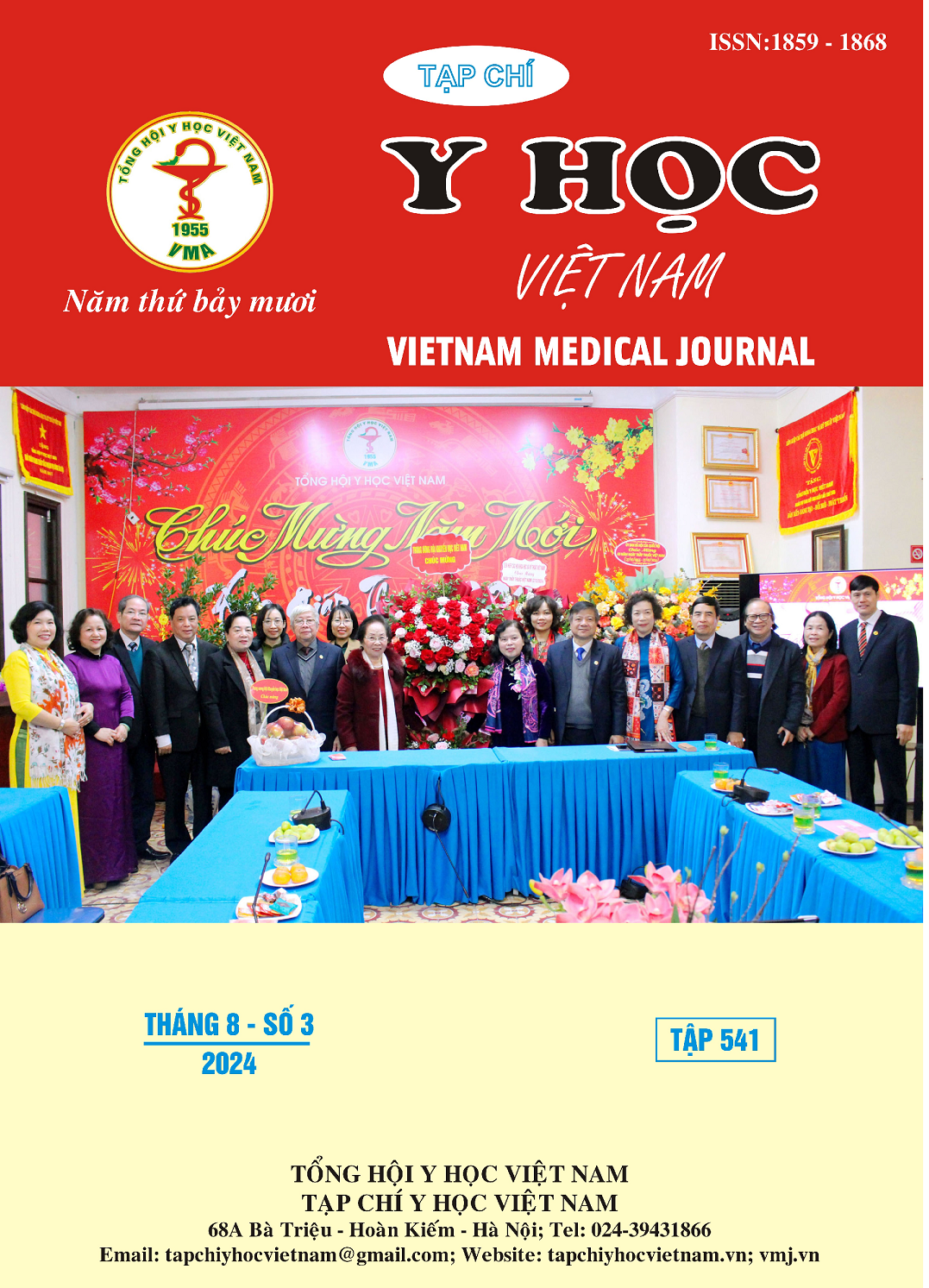CLINICAL REPORT: LATERAL VENTRICULAR TUMORS IN A PATIENT WITH TUBEROUS SCLEROSIS
Main Article Content
Abstract
Tuberous sclerosis (TS) is a rare genetic disorder caused by autosomal dominant inheritance. Mutations in either tuberous sclerosis complex 1 (TSC1) or tuberous sclerosis complex 2 (TSC2) genes play a role and lead to diseases involving multiple organs, such as the brain , heart, kidney, skin, lung and liver. The management of these patients is often multidisciplinary involving specialists from many different fields. This case report of a 14-year-old patient presented to the hospital with manifestations of intracranial hypertension pressure. Brain magnetic resonance imaging showed a large tumor in the lateral ventricle, compressing the foramen of Monro, causing hydrocelphalus. The tumor was diagnosed histopathologically as subependymoma giant astrocytoma. Computed tomography of the abdomen also revealed multiple single cysts in both kidneys. Diagnosis of tuberous sclerosis disease is confirmed by testing for the TSC1 and TSC2 genes.
Article Details
Keywords
tuberous sclerosis, subependymal giant cell astrocytoma.
References
2. Portocarrero LKL, Quental KN, Samorano LP, Oliveira ZNP, Rivitti-Machado MCDM. Tuberous sclerosis complex: review based on new diagnostic criteria. An Bras Dermatol. 2018;93(3):323-331.
3. Randle, S. (2020). Tuberous sclerosis complex: Genetics, clinical features, and diagnosis. In J. F. Dashe (Ed.), UpToDate. Retrieved October 09, 2020.
4. Bissler JJ, Kingswood JC; Renal angiomyolipomata. Kidney International, Vol. 66 (2004), pp. 924-934
5. Krueger DA, Northrup H, Tuberous Sclerosis Complex Diagnostic Criteria Update: Recommendations of the 2012 International Tuberous Sclerosis Complex Consensus Conference. Paedtr Neurol 2013; 49 (4), 243-54
6. D.W. Webb, J. Kabala, J.P. Osborne; A population study of renal disease in patients with tuberous sclerosis. Br J Urol, 74 (1994), pp. 151-154.
7. Park, S. M., Lee, Y. J., Son, Y. J., Kim, Y. O., & Woo, Y. J. (2011, December). Clinical Progress of Epilepsy in Children with Tuberous Sclerosis: Prognostic Factors for Seizure Outcome. Chonnam Medical Journal, 47(3), 150-154. Retrieved October 10, 2020.
8. Lorena Lechuga & David Neal Franz (2019): Everolimus as adjunctive therapy for tuberous sclerosis complex-associated partial-onset seizure. Expert Review of Neurotherapeutics, DOI: 10.1080/14737175.2019.1635457


